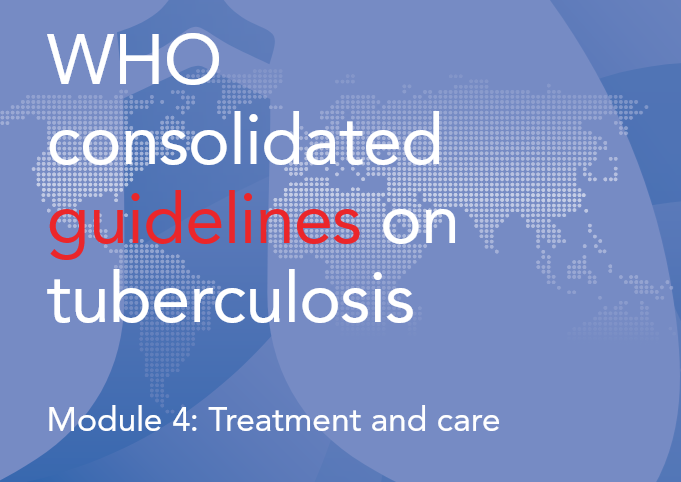WHO Announces Landmark Changes in Treatment of Drug-Resistant TB
15 April 2025
15 April 2025 | GENEVA — The World Health Organization (WHO) today released its Consolidated guidelines on tuberculosis (TB)- Module 4: treatment and care, consolidating all previous guidelines into a single comprehensive document and introducing significant improvements in treatment options for people with multidrug-resistant or rifampicin-resistant tuberculosis (MDR/RR-TB).
A key update in the drug-resistant TB treatment chapter includes a new recommendation for a novel, all-oral, 6-month regimen – BDLLfxC – for the treatment of MDR/RR-TB, with or without additional resistance to fluoroquinolones (pre-XDR-TB).
Additionally, modified 9-month regimens are also recommended for the treatment of MDR/RR-TB, where fluoroquinolones resistance is excluded.
“Drug-resistant TB is a major driver of the global antimicrobial resistance crisis and poses a serious threat to global health security, ” said Dr Tereza Kasaeva, Director of WHO’s Global Programme on TB and Lung Health. “We call on national programmes, technical partners, donors, civil society, and all stakeholders to unite in implementing these new guidelines. Every person affected by drug-resistant TB deserves access to the most effective treatment options, no matter where they live, so they can be cured and return swiftly to a healthy, productive life.”
These new recommendations are based on recent clinical trials, including the BEAT-Tuberculosis Trial (South Africa, NCT04062201), and endTB Clinical Trial (NCT02754765), which provided evidence supporting the WHO review.
To support countries in responding to the challenges of TB and drug-resistant TB, including extensively drug-resistant TB (XDR-TB) and pre-XDR-TB, WHO regularly issues evidence-based guidelines The WHO consolidated guidelines on tuberculosis, Module 4: treatment and care bring together recommendations on drug-susceptible tuberculosis, drug-resistant tuberculosis, and patient care. These guidelines will be complemented by the WHO consolidated operational handbook on tuberculosis, Module 4: treatment and care, providing practical guidance for implementing WHO recommendations at scale, supporting national health programs, technical partners, and healthcare providers.
WHO gratefully acknowledges the work of the guidelines development group (GDG) members, the evidence reviewers, national TB programmes, technical and funding partners, community and civil society representatives, the data contributors, patients and their caregivers, and all others who contributed to the data to inform this guideline update.
To support and encourage the adoption of the new regimen for treating drug-resistant TB, WHO hosts a regular online discussion platform, bringing together high MDR/RR-TB burden countries, civil society, technical partners, and the donor community.
Source: World Health Organization

